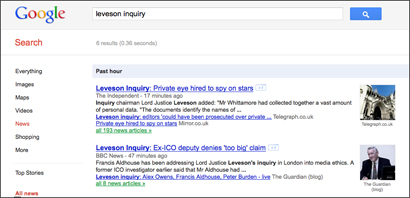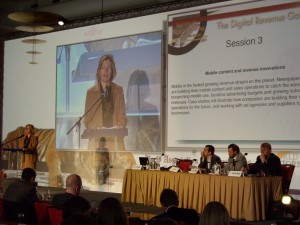The SplinterNet blog provides an interesting insight on how news organisations can increase their Google News ranking.
Writing on the blog, Oliver Conner explains that “Google doesn’t divulge the secrets of its trade – so it is up to the SEO specialists to try and work it out” and links to a September study which asked the top SEO practitioners of major news organisations what they thought were the most important factors.
He highlights some of the “most important/interesting considerations” – and the terrifying suggestion that one spelling mistake can “blacklist your site”.
1. Category authority – if you keep writing optimised stories about a topic then you will gain authority in that area;
2. Keywords in headline and page titles;
3. Domain authority – the news organisation domain has lots of quality inbound links’;
4. Social sharing – lots of tweets, Facebook shares and Google+ mentions. This is set to become more important, as it has recently been announced that articles that your friends have G+’d will be highlighted;
5. First to publish the story – this will increase the amount of inbound links;
6. Citation rank – the number of high quality sites that link to (cite) a news story;
7. Unique articles;
8. High CTR (click through rates) – the more clicks a site gets from either Google News or other Google SERPs (search engine results page);
9. Quality content – Google evaluates the quality of the content and looks for things like typos and copied content. Apparently, one spelling mistake can blacklist your site!
10. Use of Google News XML sitemap – a way of structuring your news site in a way that Google can easily understand.
The post “Getting to the top of Google News” is worth reading as it also includes other important factors to consider when thinking about optimising your news site for Google News.
Journalism.co.uk has a couple of handy guides on search engine optimisation:
Journalism.co.uk’s news:rewired – media in motion conference for journalists will have a workshop on SEO for journalists. The agenda is at this link.

